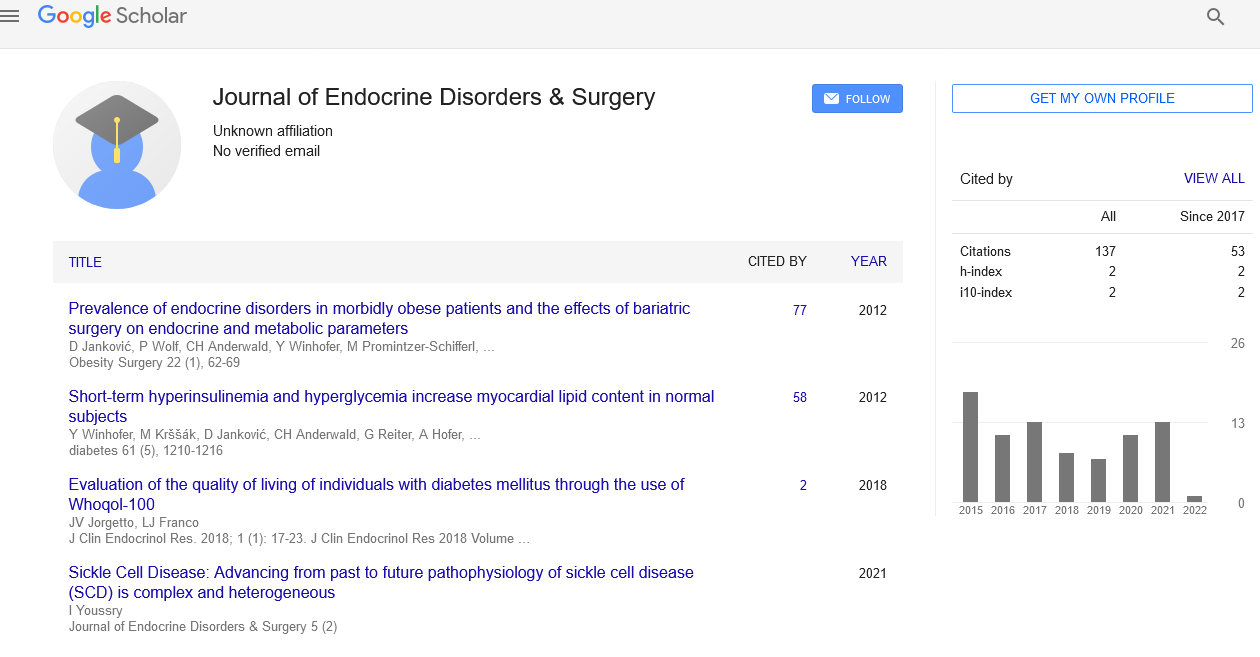Obesity and Cancer: A Possible role for dysregulated dietary phosphate
Received: 10-Feb-2022, Manuscript No. M-4186; Editor assigned: 11-Feb-2022, Pre QC No. P-4186; Accepted Date: Feb 20, 2022; Reviewed: 11-Feb-2022 QC No. Q-4186; Revised: 10-Feb-2022, Manuscript No. R-4186; Published: 28-Feb-2022, DOI: 10.37532/puljeds.2022.6(1)-001-002.
This open-access article is distributed under the terms of the Creative Commons Attribution Non-Commercial License (CC BY-NC) (http://creativecommons.org/licenses/by-nc/4.0/), which permits reuse, distribution and reproduction of the article, provided that the original work is properly cited and the reuse is restricted to noncommercial purposes. For commercial reuse, contact reprints@pulsus.com
Abstract
Obesity is the second-highest avoidable risk factor for cancer, behind smoking, but rising obesity and overweight rates are expected to replace smoking as the main preventable cancer risk factor. Few studies have looked at the dysregulated endocrine metabolism of dietary phosphate as a potential moderating element in the obesity-cancer link. Phosphate toxicity, or the build-up of excess phosphate in the body as a result of dysregulated phosphate metabolism, has been linked to cancer. Obesity is also associated with high levels of hormones that govern phosphate metabolisms, such as parathyroid hormone and fibroblast growth factor 23, suggesting a possible relationship between obesity and phosphate toxicity. Increased inorganic phosphate intake has been connected to an increase in the consumption of foods processed with phosphate additions, and consumption of ultraprocessed foods has been linked to an increase in the prevalence of obesity. Sugar-sweetened drinks are the single highest source of sugar and energy intake in the United States, and colas containing phosphoric acid have been linked to carcinogenesis, implying yet another possible link between obesity and cancer. Furthermore, dietary phosphate is associated with an increase in obesity, central obesity, and metabolic syndrome. The current viewpoint essay posits that dysregulated dietary phosphate may play a role in the obesity-cancer link. toxicity. Increased inorganic phosphate intake has been connected to an increase in the consumption of foods processed with phosphate additions, and consumption of ultra-processed foods has been linked to an increase in the prevalence of obesity. Sugar-sweetened drinks are the single highest source of sugar and energy intake in the United States, and colas containing phosphoric acid have been linked to carcinogenesis, implying yet another possible link between obesity and cancer. Furthermore, dietary phosphate is associated with an increase in obesity, central obesity, and metabolic syndrome. The current viewpoint essay posits that dysregulated dietary phosphate may play a role in the obesity-cancer link.
Introduction
Obesity is outlined by the planet Health Organization (WHO) as “abnormal or excessive fat accumulation that will harm health” caused by a “energy imbalance between calories eaten and calories expended”. Noting that “overweight and blubber, furthermore as their connected noncontagious diseases, area unit for the most part preventable,” WHO counseled that blubber and overweight be reduced through confirmatory environments and communities that offer easier access to regular physical activity, furthermore as cheaper and additional promptly out there healthy food choices.
Obesity is the second-highest avoidable risk factor for cancer after smoking, but rising obesity and overweight rates are expected to replace smoking as the main preventable cancer risk factor over the next two decades. Despite this, a large portion of the population is still uninformed of the link between fat and cancer. Obesity has been linked to at least 13 types of cancer, including the esophagus, stomach, colon, liver, gallbladder, pancreas, breast, uterine, ovary, kidney, meninges, thyroid, and white blood cells. A larger body weight, however, has been linked to a lower risk of cancer—an obesity paradox that some researchers believe is due to selection bias from the use of body mass index (BMI), which does not account for fat ma Pathophysiological processes between fat and cancer are frequently studied through hormonal and enzyme dysregulation of glucose and lipid metabolism. Obesity, for example, is related to greater levels of the hepatic protein kinase C (PKC), which inhibits glycogenesis. PKC dysregulation is frequent in many malignancies and may play a role in cancer formation. Furthermore, dysregulated inositol synthesis in Drosophila melanogaster on a high-sucrose diet might serve as a model for comparable inositol abnormalities in human cancer and obesity. However, few studies have looked at dysregulated endocrine metabolism of dietary phosphate as a potential mediating mechanism in the obesity-cancer link.
The current perspective paper examines the epidemiologic and pathophysiologic links between obesity, poor dietary choices linked with dysregulated dietary phosphate, and carcinogenesis in obesity-related malignancies. In this perspective paper, articles from the research literature were chosen and evaluated utilising the grounded theory technique. Keyword searches were carried out in Google, Google Scholar, PubMed, Scopus, and other online databases. The findings of comparative literature analyses were consolidated into themes and developed into causal and association links between obesity, dysregulated phosphate metabolism, and cancer. To summarise, the evidence reported in this work supports an endocrine route in which dysregulated dietary phosphate may influence the link between obesity and cancer. Obesity increases the intake of inorganic phosphate, phosphoric acid, and other phosphate additions due to excessive consumption of ultra-processed meals and other phosphate-rich foods, resulting in dysregulated dietary phosphate. In turn, phosphate toxicity and dysregulated dietary phosphate are linked to cancer. More research should be done to look at the role of dysregulated dietary phosphate and poor renal function in obesity-related malignancies.
Key Words
Obesity; cancer; tumorigenesis; dysregulated phosphate; phosphate toxicity; FGF23; parathyroid hormone; vitamin D; phosphoric acid; ultra-processed food.





